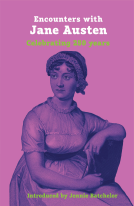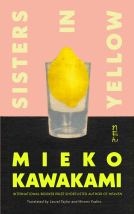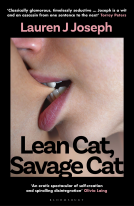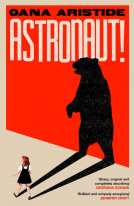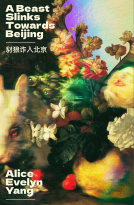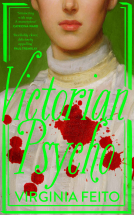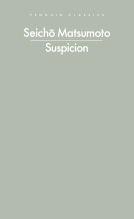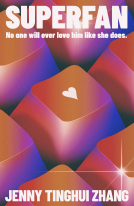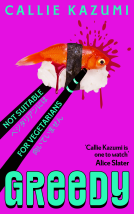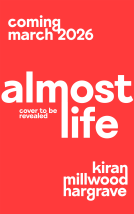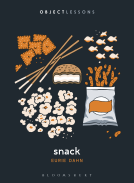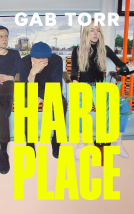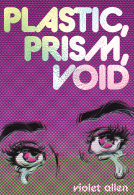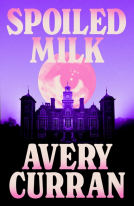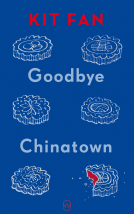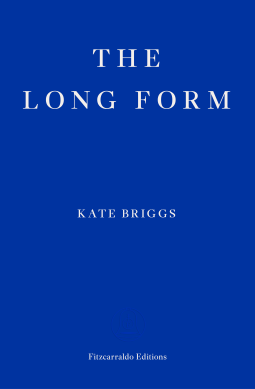
The Long Form
by Kate Briggs
This title was previously available on NetGalley and is now archived.
Send NetGalley books directly to your Kindle or Kindle app
1
To read on a Kindle or Kindle app, please add kindle@netgalley.com as an approved email address to receive files in your Amazon account. Click here for step-by-step instructions.
2
Also find your Kindle email address within your Amazon account, and enter it here.
Pub Date 12 Apr 2023 | Archive Date 12 Apr 2023
Talking about this book? Use #TheLongForm #NetGalley. More hashtag tips!
Description
Helen and her young baby, Rose, are awake. It is first thing on a new morning. They move, they rest, they communicate; Rose feeds. Thoughts and associations travel far beyond the remit of the front room in their rented flat, which they pace, and which, alive with them, continually becomes new. Their delicate balance is interrupted by the delivery of A History of Tom Jones by Henry Fielding – a novel which describes itself, semi-seriously, as inventing the novel-form for the very first time. As the morning progresses, Helen starts reading it. Indirectly, and each in their own distinct ways, Helen and Rose start thinking about it: its claims to newness, its length, its essayistic digressions, its invitation to imagine old and new forms of life, writing, and experience.
The Long Form, Windham Campbell Prize-winner Kate Briggs’ long-awaited debut fiction, unmakes and remakes the novel to meditate on very real social issues, from housing, to care-taking, to friendship, laying bare the settings and support structures that make durational forms of co-existence first thinkable, then possible. At once acrobatic and deeply attentive, The Long Form insists on the creativity inherent in everyday life, showing how the acts of social composition (living arrangements) are continuous with the acts of artistic composition (page arrangements). It is a brilliant novel of profound contrasts and productive co-dependencies, in which the small details of a day speak to the largest questions of form, responsibility, continuation and love.
For fans of Pure Colour by Sheila Heti, A Ghost in the Throat by Doireann Ní Ghríofa and Three Rooms by Jo Hamya.
A Note From the Publisher
This is Kate Briggs' debut novel.
Advance Praise
Praise for This Little Art:
‘Kate Briggs’s This Little Art shares some wonderful qualities with Barthes’s own work – the wit, thoughtfulness, invitation to converse, and especially the attention to the ordinary and everyday in the context of meticulously examined theoretical and scholarly questions. This is a highly enjoyable read: informative and stimulating for anyone interested in translation, writing, language, and expression.’
— Lydia Davis, author of Can’t and Won’t
‘I have been thinking, many weeks after having finished it, of Kate Briggs’ truly lovely This Little Art, a book-length essay on translation that's as wry and thoughtful and probing as any book I’ve read in the past year. My favourite works are those in which one feels the writer wrestling with genre even as she is writing; Kate Briggs does this with her own kind of magic, never failing to write beguilingly and intelligently and passionately about the little art of translation, which in the end shows itself to be not so little, at all.’
— Lauren Groff, author of Matrix
‘Brilliant.’
— The Windham Campbell Prize
Available Editions
| EDITION | Paperback |
| ISBN | 9781804270325 |
| PRICE | £12.99 (GBP) |
Available on NetGalley
Average rating from 10 members
Featured Reviews
 Reviewer 876149
Reviewer 876149
Despite the deceptively-simple storyline, this is an intricate, ambitious merging of novel and essay. Kate Briggs follows Helen and her six-week-old baby Rose. Alone in a rented flat they’re bound together in a process of learning and sharing of experiences, sometimes in sync, sometimes each a mystery to the other. In a series of snatched moments, Kate removes herself from her immediate surroundings by immersing herself in a worn copy of Fielding’s classic The History of Tom Jones, a Foundling An interaction that also opens up a dialogue between Helen and Rose’s narrative and Fielding’s and then by extension the nature of the novel itself. An interrogation that links back to Briggs’s earlier work on translation and her thoughts on Barthes and the novel, or as he dubbed it, the long form. Elements of Briggs’s structuring of her ideas also reminded me of aspects of Barthes’s writing, particularly the ordered, yet fragmented, A Lover’s Discourse - further echoed in a sub-plot involving the delivery driver who carried Fielding’s novel to Helen’s door.
Through The Long Form Briggs interrogates the nature of representation, the ways that narrative might shape or be shaped by forms of knowledge and experience. She probes its machinery: how it might operate; be structured; what it might contain. As Rose and Helen map out space and time, over days spent in their ground-floor home, Briggs contrasts their experiences with the operations of the novel as form and object. She examines the novel – or rather the British, English-language novel – from a range of perspectives not least its interrelations with the book as material object, something that circulates in wider social and cultural contexts, bringing to mind Chartier and Genette and their ideas about reception and processes of reading, the myriad complex encounters between reader and text.
As much as Briggs is caught up in the nature, the limits, and the possibilities of fiction, she’s clearly invested too in issues about literary value and what stories are considered worthy of being told. This is made explicit by her focus on a narrowly-confined, “domestic” narrative. One that’s centred on care-giving, and notions of the maternal and the consciousness of a baby - the sorts of story and characters that’ve often been judged as peripheral or lacking gravity, all too often excluded from the canon of so-called "serious literature".
Briggs's book's a heavily referential, deeply thoughtful, analytical piece, a carefully-spun web of influences and ideas with a pronounced architectural quality. Briggs is in conversation here with literary theory, philosophy, and fiction - she helpfully includes an annotated list of her main sources of inspiration. She’s also very cleverly engaged in a process of making and remaking the “women’s novel” using it to gesture at wider social, aesthetic and ideological relations. I found this surprisingly compelling although for anyone, including me, who’s studied literary and/or cultural theory she’s often covering familiar ground. Her approach often felt fresh and thought-provoking but it could also feel overly-dense, sometimes stretched out and too reliant on the descriptive. I also liked the concept, which flows from Helen’s interaction with Fielding’s novel, of constructing an argument through juxtaposing and interweaving different genres, but it could also obscure the central points being put forward.
The Long Form is a novel about the novel and also a novel about a day in the life of a woman with a new baby, combining literary criticism with a critique on caring structures and forming connections. Helen is on maternity leave, caring for her new baby Rose, and the copy of Henry Fielding's Tom Jones that she ordered online has just arrived. As the day progresses, she starts to read Tom Jones, and the narrative explores the story of Helen's day, of Tom Jones, and of the novel form.
This book is a fascinating mix of a highly literary style, bringing in literary criticism and stylistic digressions, with a very human narrative of a day in the life of a new parent, covering the sorts of large and small struggles that might not typically be in such a literary-reference-heavy novel. Despite the immediate style and the constant returning to the plot of Tom Jones as well as theorists on "the novel", The Long Form was surprisingly readable, building up a real sense of connection with Helen and Rose and the interplay between them and the texts referenced. The book ends with a list of referenced and relevant works, which is useful for people reading this without a particular background in literary criticism (the works aren't just about the novel form either - I noticed Full Surrogacy Now in there as well).
Aside from the literary criticism and references, the book also explores how one woman and one baby exist within society, and the kinds of security or lack of security that can bring. There's a particular focus on the roles of friendship and family, especially in terms of what is expected of someone with a new baby, and the snippets of Helen's friendship with Rebba were one of my favourite elements of the book, arguing for the importance of their relationship in their lives and suggesting how this might clash with society's idea of the hierarchy of human connections.
The Long Form surprised me with how much it could say and the way in which the different elements of it could be so well entwined. For some people, it might be too much of a literary experiment to be enjoyable as a novel, but as someone who did an English degree I appreciated how it managed to keep the literary criticism parts accessible within the novel itself, allowing the book to question what a novel is whilst also telling a compelling story.
 Veerle V, Reviewer
Veerle V, Reviewer
A book about motherhood, Henry Fielding and literary theory boring? Think again! The plot line seems simple: Helen caring for her baby Rose during maternity leave. Not having children myself I wasn't sure whether this book would be for me.
It was. Caring for Rose is the starting point for philosophical meanderings about how a newborn redefines you as a person and your interactions with the world, about Tom Jones and novels, about life...
I failed to meet the ARC deadline (thank you NetGalley and Fitzcarraldo Editions) because I devoured this one slowly. There is so much in this book that I am going to buy it, because I need to read this one again!
Readers who liked this book also liked:
Jennie Batchelor, Julia Quinn, Natalie Jenner, Charlie Lovett, Talulah Riley, Janet Todd et al
Essays & Collections, Novellas & Short Stories, Women's Fiction
